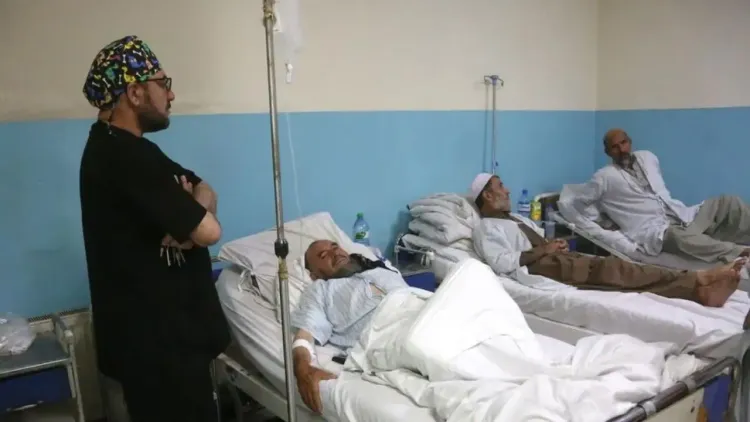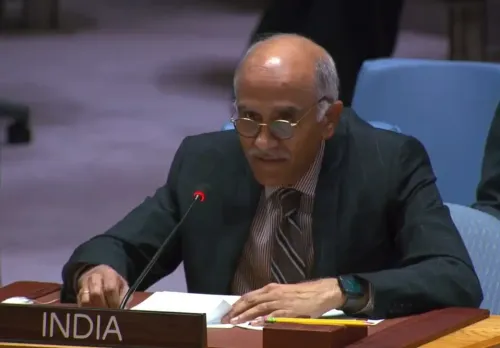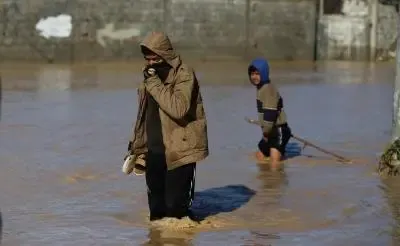Afghanistan Faces Increase in Acute Respiratory Illnesses

Synopsis
Key Takeaways
- A 54.1% rise in acute respiratory diseases noted.
- Over 206,000 infections reported in January 2025.
- Children are the most affected demographic.
- Poor fuel quality exacerbates respiratory infections.
- UNICEF and WHO are mobilizing resources and support.
Kabul, March 6 (NationPress) Afghanistan is currently facing significant challenges related to acute respiratory diseases, with children being the most vulnerable demographic. A recent report from the World Health Organization (WHO) indicates a distressing 54.1 percent surge in acute respiratory illnesses throughout the nation in January 2025, compared to December 2024.
According to the findings presented by WHO, over 206,000 individuals were diagnosed with respiratory diseases during this timeframe, leading to 506 fatalities.
Dr. Munir Ahmad Kamal, a physician, informed the prominent Afghan media outlet TOLOnews that one contributing factor to this outbreak may be the severe influence of environmental elements. The utilization of substandard fuel results in various adverse effects, particularly compromising the respiratory system and facilitating the spread of infectious illnesses, including pneumonia.
In related news, health professionals at the Indira Gandhi Children's Hospital in Afghanistan reported that they are admitting between 20 to 30 children daily who are suffering from respiratory conditions.
The United Nations Children’s Fund (UNICEF), supported by the World Bank, has taken proactive measures as outlined in a 2024 report. They have prepositioned essential medical supplies and heating materials in healthcare facilities to ensure timely medical intervention for those affected by the escalating number of acute respiratory infections (ARI).
The WHO is actively working to enhance the health and wellbeing of the Afghan population by striving to reduce mortality, morbidity, and disability while also fortifying health services.
The organization notes that acute respiratory infections (ARI) account for 15 percent of all deaths among children under five years of age globally.
As the directing and coordinating authority for health within the United Nations system, the WHO is responsible for providing leadership in global health initiatives, shaping the health research agenda, establishing norms and standards, articulating evidence-based policy options, offering technical support to nations, and monitoring and assessing health trends.









